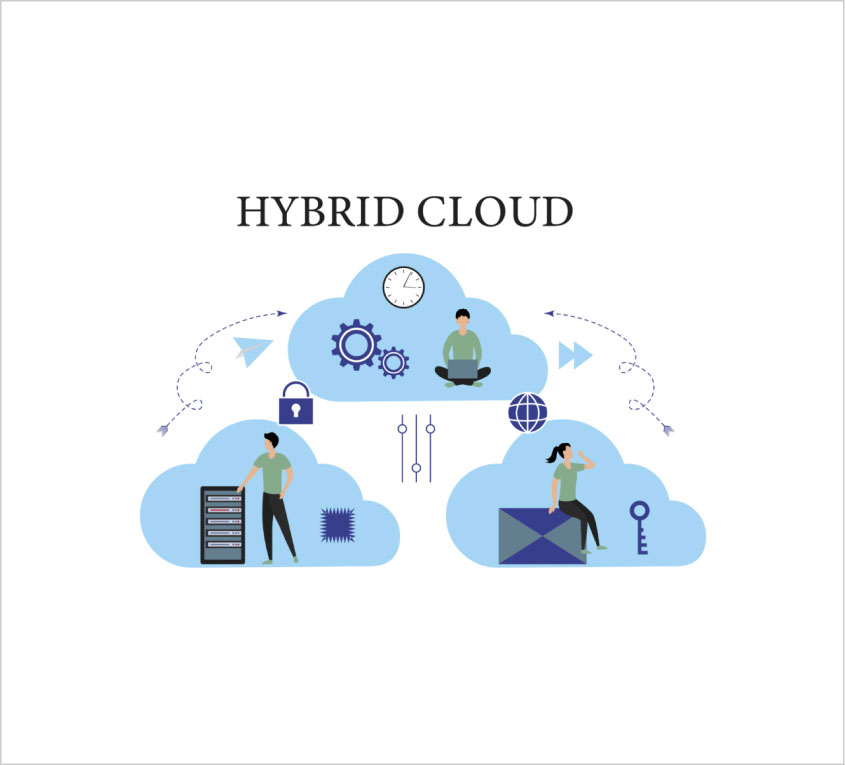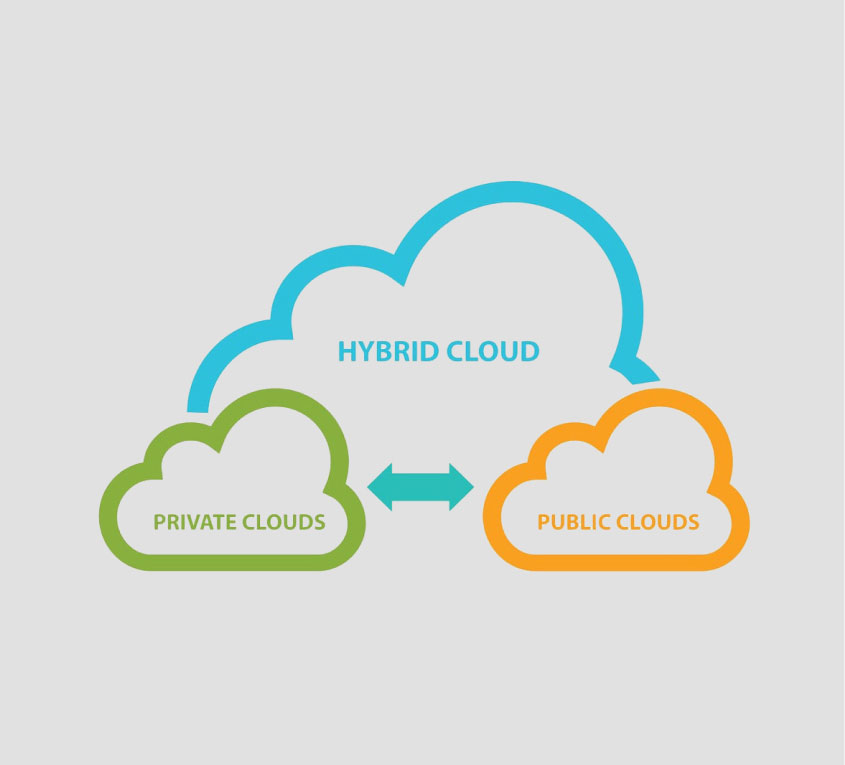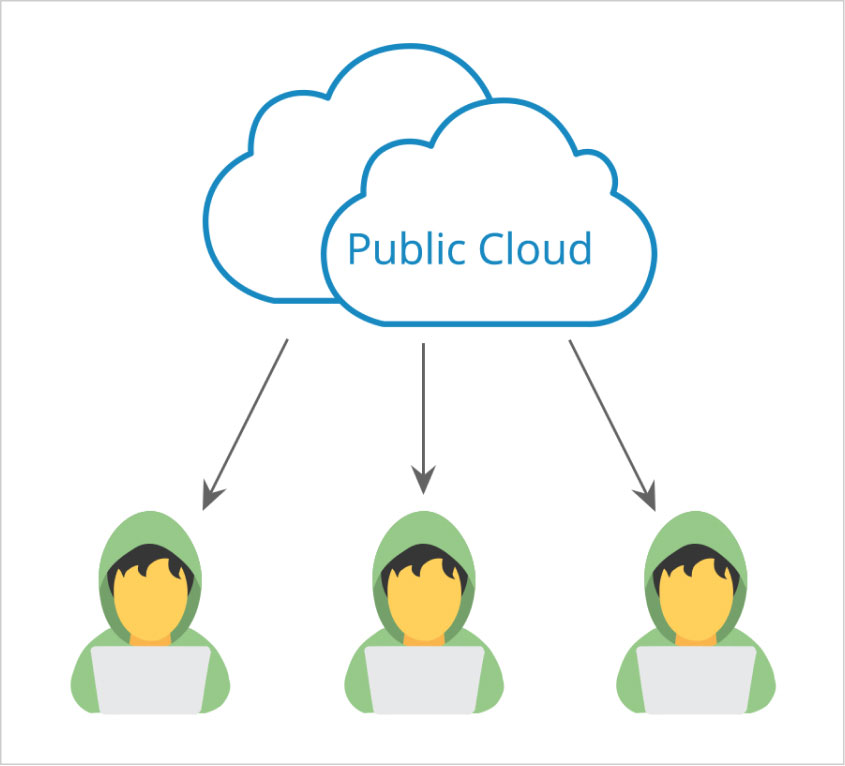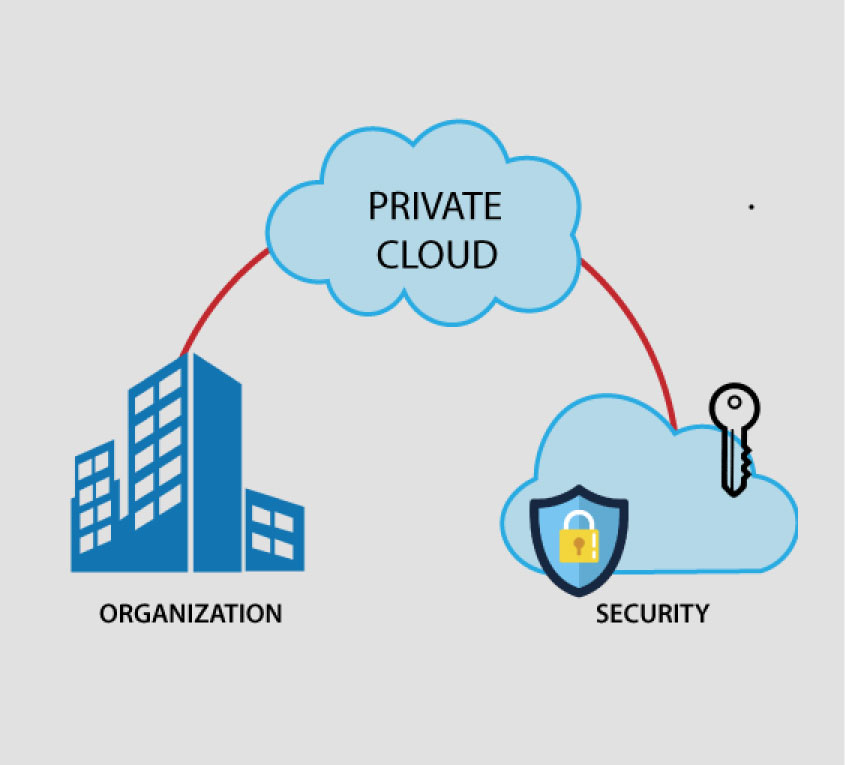Private/Public/Hybrid Cloud Services

Public cloud, private cloud or hybrid cloud?
We deliver highly effective and reliable cloud computing solutions that give organizations an advantage over their competition. With our cloud solutions, organizations can reduce IT resource requirements, increase productivity, as well as lower costs and speed up time to market.
In enabling organizations to adopt cloud-based services, we help them become more agile and responsive to the changing market landscape, allowing them to make informed decisions and maximize their return on investment (ROI).
We are a one-stop cloud provider that offers world-class cloud services with flexible options, whether your applications are run on-premises in a captive data center, in a third-party hosted private or public cloud, or a combination of both. Through our cloud consulting framework, we help our customers address all the challenges associated with a seamless cloud migration.
The benefits of a hybrid cloud platform
Hybrid cloud platforms provide organizations with many benefits, including greater flexibility, more deployment options, security, compliance, and better use of their existing infrastructure. When computing and processing demand fluctuates, businesses can stay on top of any overflow by integrating their on-premises infrastructure with the public cloud seamlessly, without giving third-party datacenters access to all their data.
Public clouds provide organizations with the flexibility and innovation they need by enabling them to run certain workloads in the cloud while keeping highly sensitive data in their own datacenters for regulatory compliance and client needs. Besides allowing companies to scale computing resources, this also reduces the need for major capital expenditures when there's a short-term spike in demand, or when the business wants to free up local resources for more sensitive data or applications. As a result, companies will only pay for the resources they use temporarily, rather than having to buy, program, and maintain additional resources and equipment that could sit idle for long periods of time.

Advantages of Hybrid Cloud
Control
A private infrastructure can be maintained for sensitive assets or workloads requiring low latency.
Flexibility
Using the public cloud can equip you with additional resources when you need them.
Cost-effectiveness
Scaling to the public cloud means you only pay when you need extra computing power.
Ease
Adding workloads gradually over time can allow you to migrate to the cloud without being overwhelmed.

What is a public cloud?
Public clouds are the most common deployment model for cloud computing. A third-party cloud service provider owns and operates the cloud resources (such as servers and storage). The cloud provider owns and manages all hardware, software and supporting infrastructure in a public cloud. The Microsoft Azure cloud is one example of a public cloud. With a public cloud, you rent or share hardware, storage, and network devices with other organizations. You access services and manage your account via a web browser. Typically, public cloud deployments are used for web-based email, online office applications, and storage as well as for development and testing.
Advantages of public clouds
Lower costs
It is not necessary to purchase hardware or software, and you only pay for the service you use.
No maintenance
The maintenance is handled by your service provider.
Near-unlimited scalability
Resources are available on demand to meet your business needs.
High reliability
A vast network of servers to ensure that there will be no failures.
What is a private cloud?
Private clouds are cloud computing resources utilized exclusively by one company or organization. It can be located in your organization's on-site datacenter, or it can be hosted by a third party service provider. Using a private cloud, you can maintain your services and infrastructure on your own network, and your hardware and software can be dedicated to your organization exclusively. In this manner, a private cloud can make it easier for an organization to control its resources according to its specific IT needs. Government agencies, financial institutions, and any other mid to large-size organizations with business-critical operations tend to use private clouds to improve control over their environments.

Advantages of a private cloud
More flexibility
Your organisation can customise its cloud environment to meet specific business needs.
More control
Resources are not shared with others, so higher levels of control and privacy are possible.
More scalability
Private clouds often offer more scalability compared to on premises infrastructure.


